- Home
- About Us
- Products
-
Heat-Pump Dehumidifier DeAir
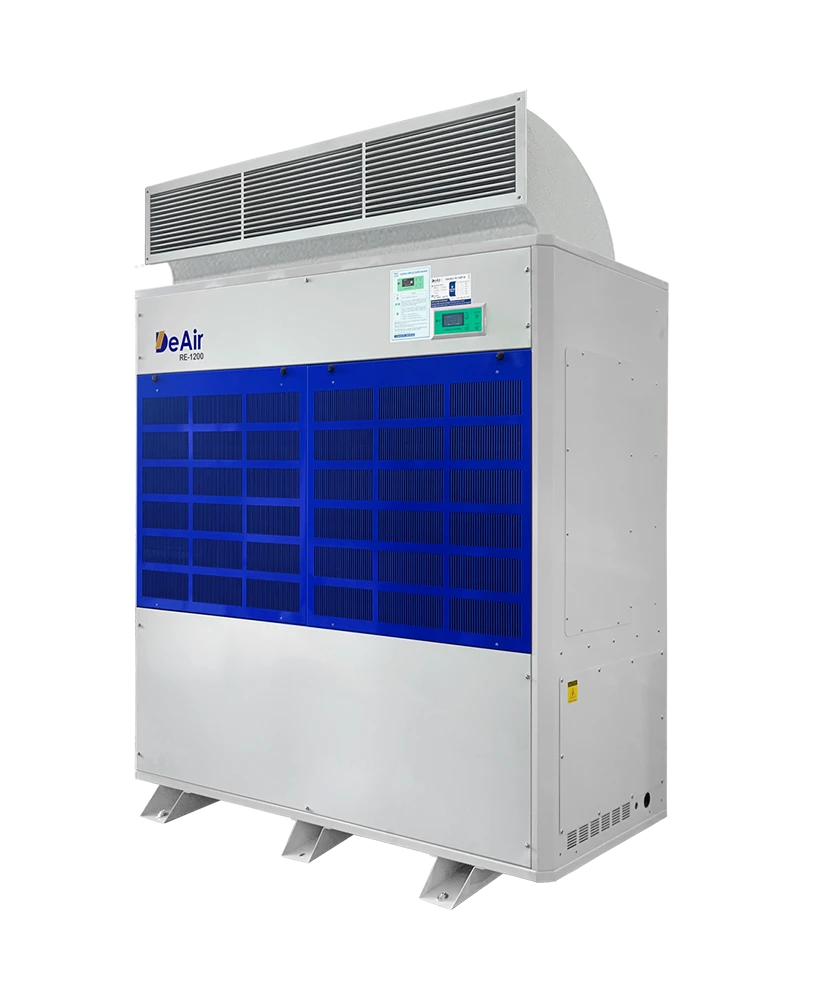 DeAir.RE
DeAir.RE -
Heat-Pump Dryer DeAir.RE-H
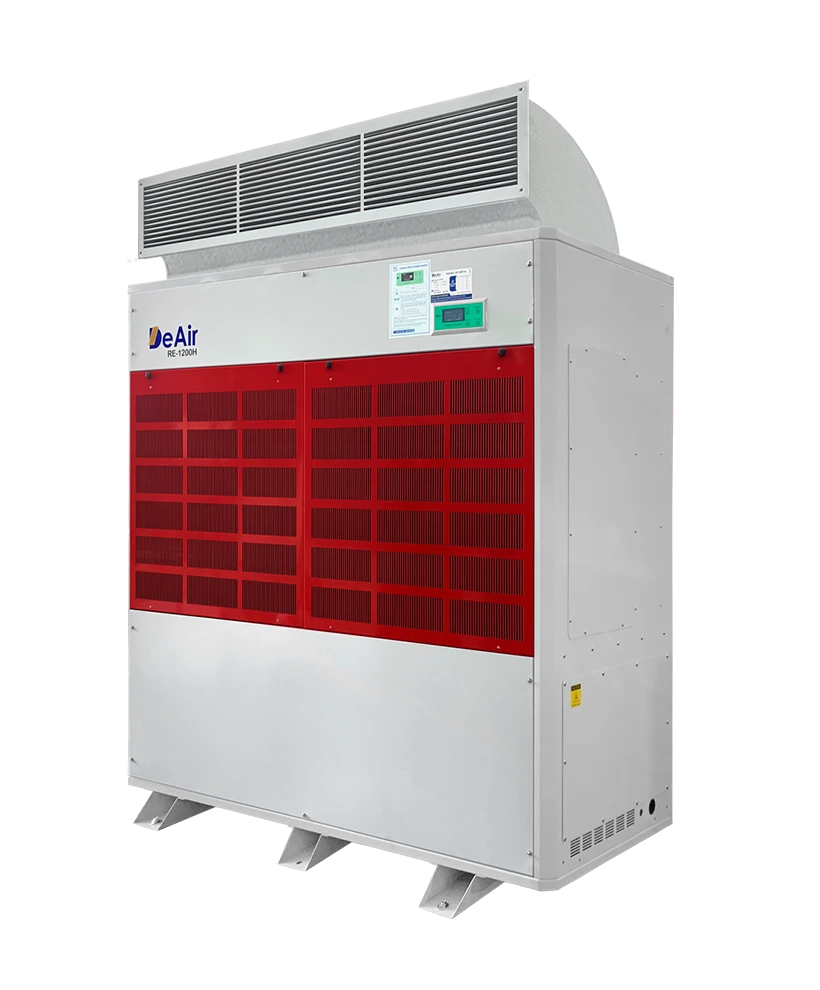 DeAir.RE-H
DeAir.RE-H -
Heat-Pump Stainless Steel Dehumidifier
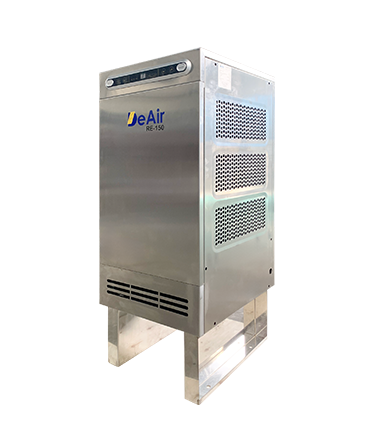 DeAir.RE-INOX
DeAir.RE-INOX -
Heat-Pump Isothermal Dehumidifier DeAir.CRE
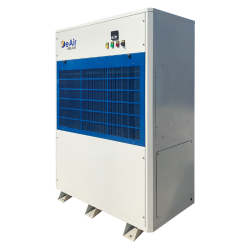 DeAir.CRE
DeAir.CRE -
Dezenno Dehumidifier
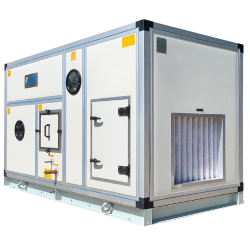 Dezenno
Dezenno -
Heat-Pump Ceiling Mounted Dehumidifier DeAir
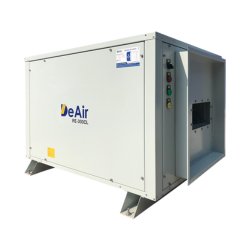 DeAir.RE-CL
DeAir.RE-CL -
Dehumidifier Olmas
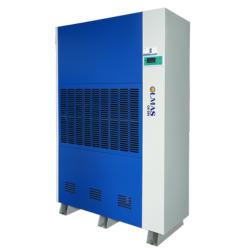 Olmas-OS
Olmas-OS -
Industrial Humidifier DeAir
 DeAir.HM
DeAir.HM -
Heat-Pump Dryer Daxwell
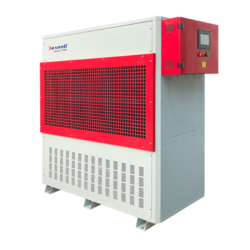 Daxwell
Daxwell -
Electric Duct Heater DeAir
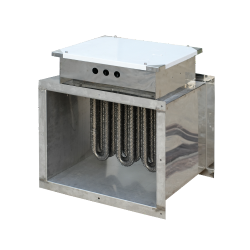 DeAir.Heat
DeAir.Heat -
Air Handling Unit Dezenno.MAX
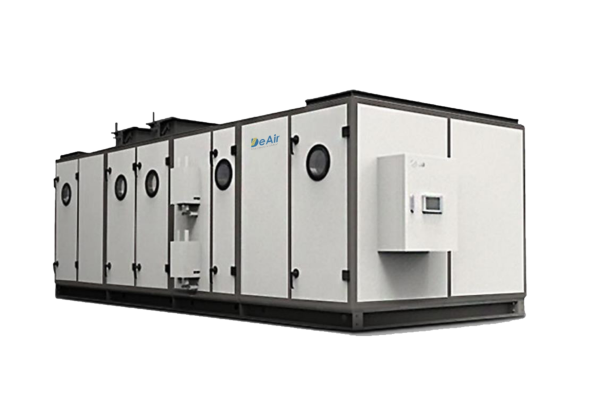 AHU
AHU
-
- Services
- Projects
- Warranty – Maintenance
- News
- Contact
Analyzing Vegetable Drying Technologies: Kiln, Resistance, Freeze-Drying & The Optimal Solution
13/11/2025
Elevating Agricultural Value: Choosing the Right Drying Technology
Vietnam is an agricultural powerhouse, but post-harvest losses remain very high. Drying is a primary solution to enhance value and preserve produce. However, the market is flooded with too many technologies: traditional kilns, electric resistance, freeze-drying, heat-pump, etc.
Choosing the wrong technology not only ruins the product (loss of color, nutrients) but also "burns" money through massive operating costs. This article will analyze in detail the pros, cons, and costs of 5 common drying technologies to help you find the optimal solution.
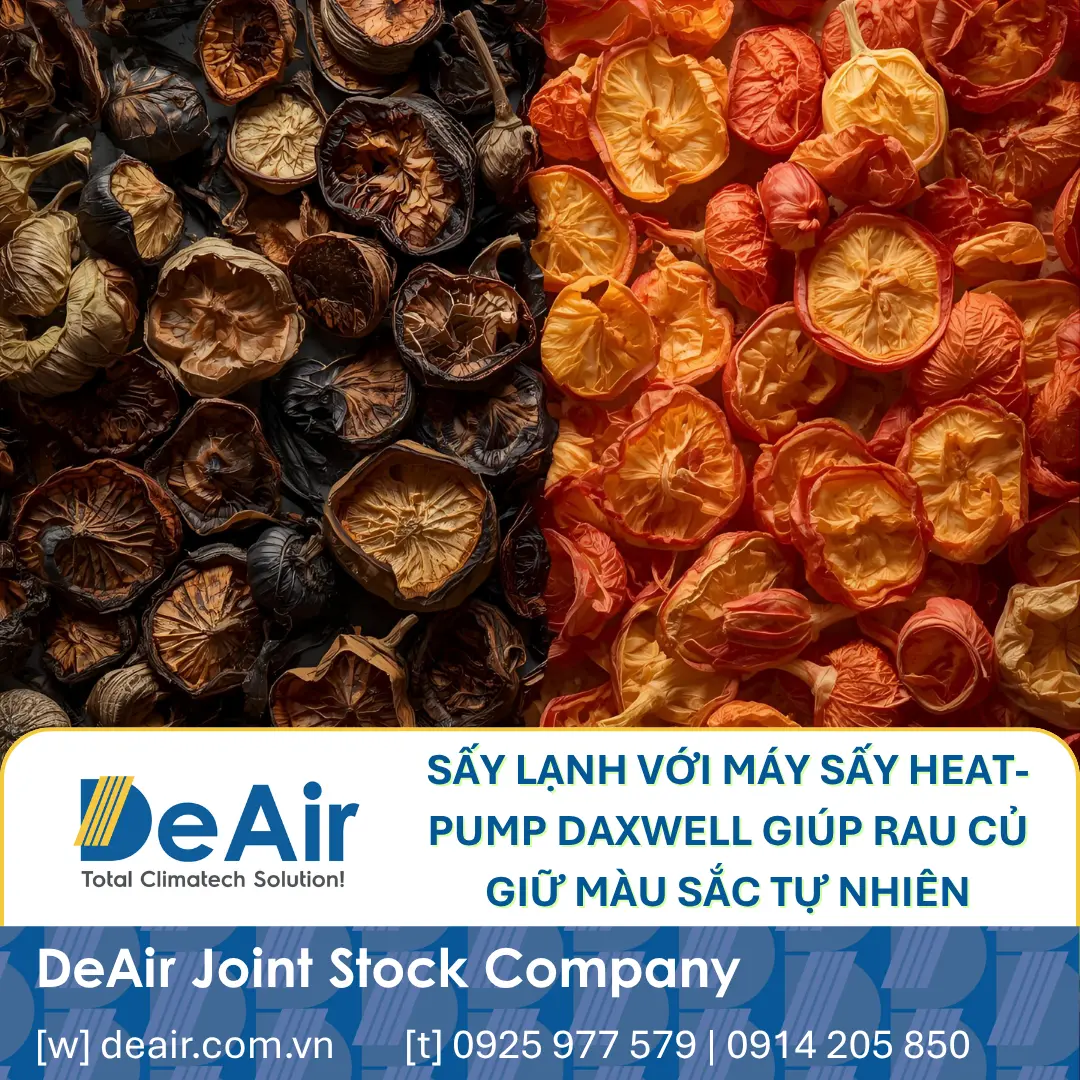
Table of Contents
1. The Importance of Choosing the Right Vegetable Drying Technology
Vegetables are highly sensitive to heat. Drying is not just about removing water; it's a complex technical process to preserve 3 key product attributes:
- Color & Flavor: Retaining the natural color (green in vegetables, orange in carrots) and aromatic compounds.
- Nutrition: Preserving vitamins (especially Vitamin C & A) and enzymes, which are easily destroyed by high temperatures.
- Texture: Maintaining chewiness, crispness, or porosity (not becoming hard, burnt, or shrunken).
2. A Breakdown of 5 Common Vegetable Drying Technologies
1. Traditional Drying (Kilns, Sun-Drying)
- Principle: Uses uncontrolled, raw heat.
- Pros: VERY LOW investment cost.
- Cons: VERY LOW final product quality (smoky, dirty, fails food safety standards), unstable temperature (some parts burnt, some still damp), weather/fuel-dependent, labor-intensive.
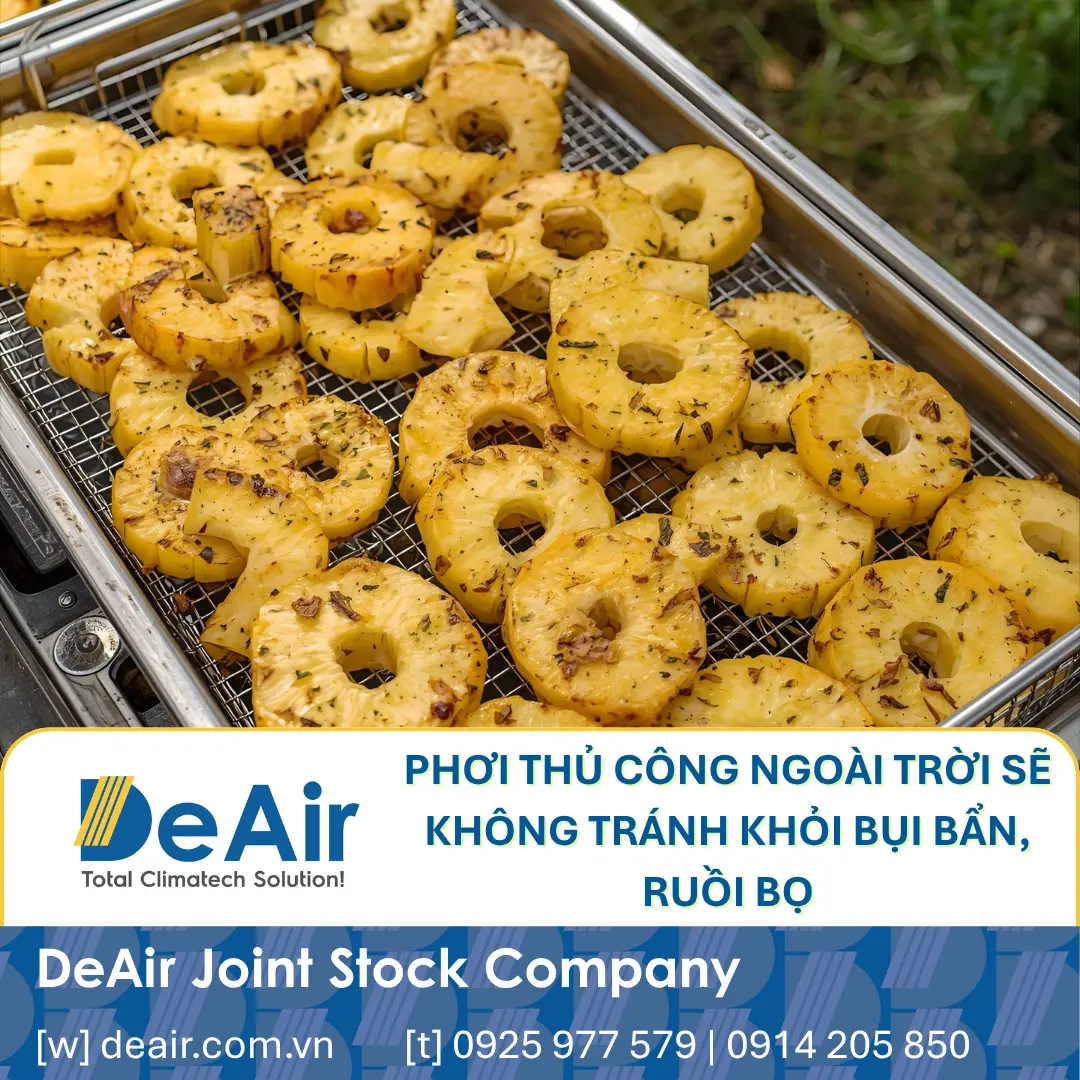
2. Electric Resistance Drying (Pure Heat)
- Principle: Uses electricity to heat coils (like an oven).
- Pros: Cleaner than kilns, 24/7 operation, low initial investment.
- Cons: HUGE operating cost (electricity bill) because its COP ≈ 1. The very high temperature (often >70°C) burns vegetables, causes shrinkage, destroys color, and eliminates almost all vitamins.
3. Freeze-Drying (Lyophilization)
- Principle: Deep-freezes the product (-30°C to -50°C), then applies a vacuum to make the water "sublimate" (turn from solid to gas).
- Pros: The WORLD'S BEST quality (preserves 100% of shape, color, nutrients).
- Cons: EXTREMELY HIGH investment (CAPEX) and operating costs. A complex process suitable only for ultra-premium products (cordyceps, dried durian...).
4. Radio Frequency / Microwave Drying
- Principle: Uses radio waves to heat water molecules from inside the product.
- Pros: VERY FAST drying speed (dries from the inside out).
- Cons: High investment cost, complex technology, difficult to control (risk of "hot spots"), not common for vegetables.
5. Heat-Pump Drying - The "Golden Mean" Technology
This is the technology DeAir focuses on with the Daxwell brand. It overcomes the drawbacks of all the methods above.
- Principle: Dehumidifies the air in a closed, circulating loop at a low temperature range (30-60°C) and recycles the waste heat (instead of venting it like resistance dryers).
- Advantages:
- VERY HIGH Quality: Drying at low temperatures (below 60°C) helps preserve the natural color, flavor, and nutrition of vegetables. Scientific studies have shown that Vitamin C and other heat-sensitive compounds are much better preserved at lower drying temperatures.
- SUPER ENERGY SAVING: Saves 50-70% on electricity (COP ≈ 2-3) compared to resistance drying.
- AFFORDABLE Investment: More expensive than resistance dryers, but far cheaper than freeze-drying or RF.
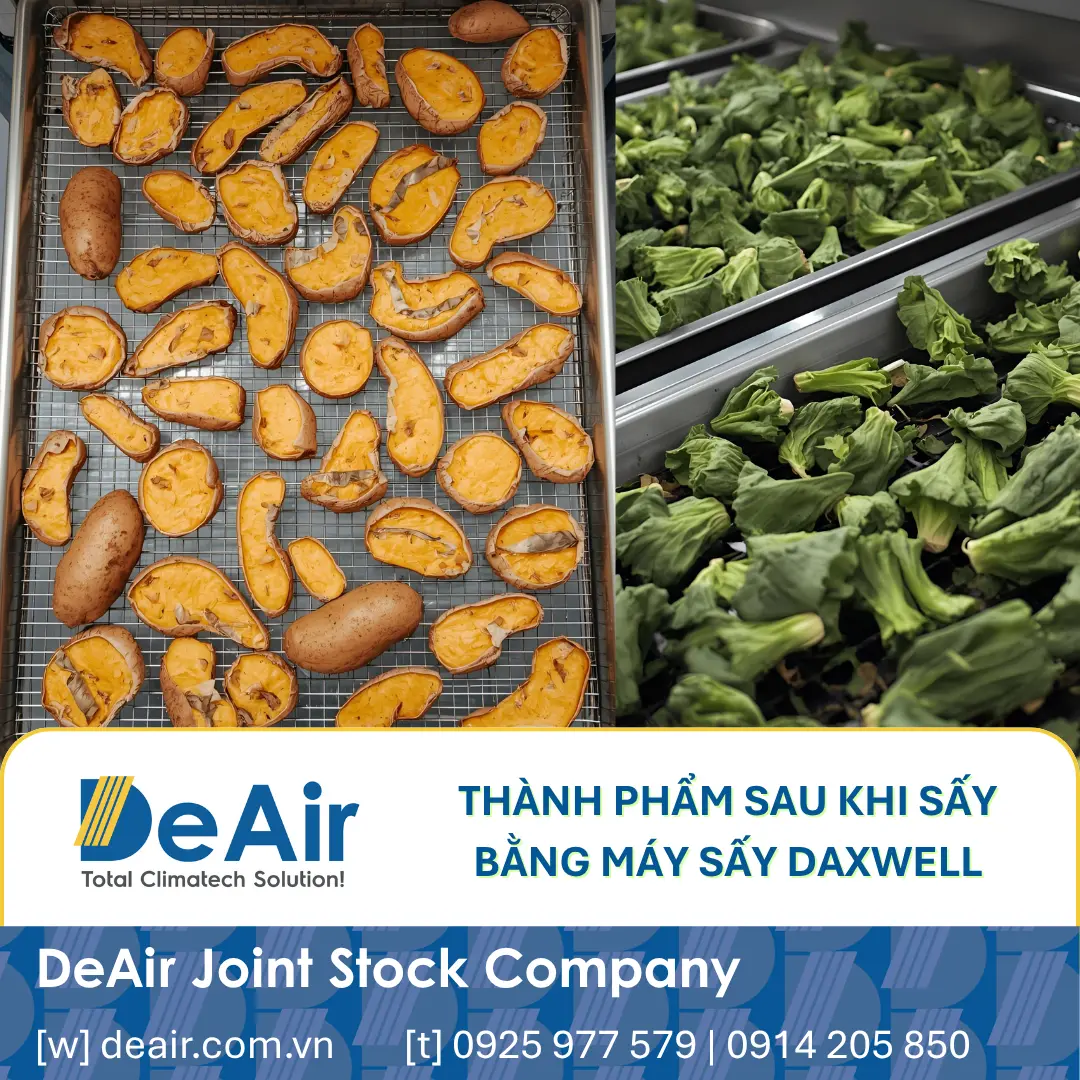
3. Infographic: Cost & Quality Comparison of Drying Technologies
| Criteria | Kiln Drying | Resistance Dryer | Heat-Pump (Daxwell) | Freeze Dryer |
|---|---|---|---|---|
| Investment Cost (CAPEX) | Very Low | Low | Medium | Very High |
| Operating Cost (OPEX) | Low (Fuel) | Very High (Electricity) | Very Low (Energy Saving) | High |
| Quality (Color) | Poor (Smoky) | Medium (Browning) | Good (Vibrant Color) | Excellent (Like fresh) |
| Quality (Nutrition) | Poor (All lost) | Poor (High loss) | Good (Vitamins preserved) | Excellent (99% retained) |
| Food Safety | Fails | Good | Good (Closed system) | Excellent |
4. The Daxwell Dryer Solution & Its Target Audience
The Daxwell Heat-Pump Dryer is the prime example of heat-pump technology, manufactured and developed by DeAir in Vietnam. It features a smart PLC & HMI controller, allowing for multi-stage drying cycles, optimized for each type of vegetable.

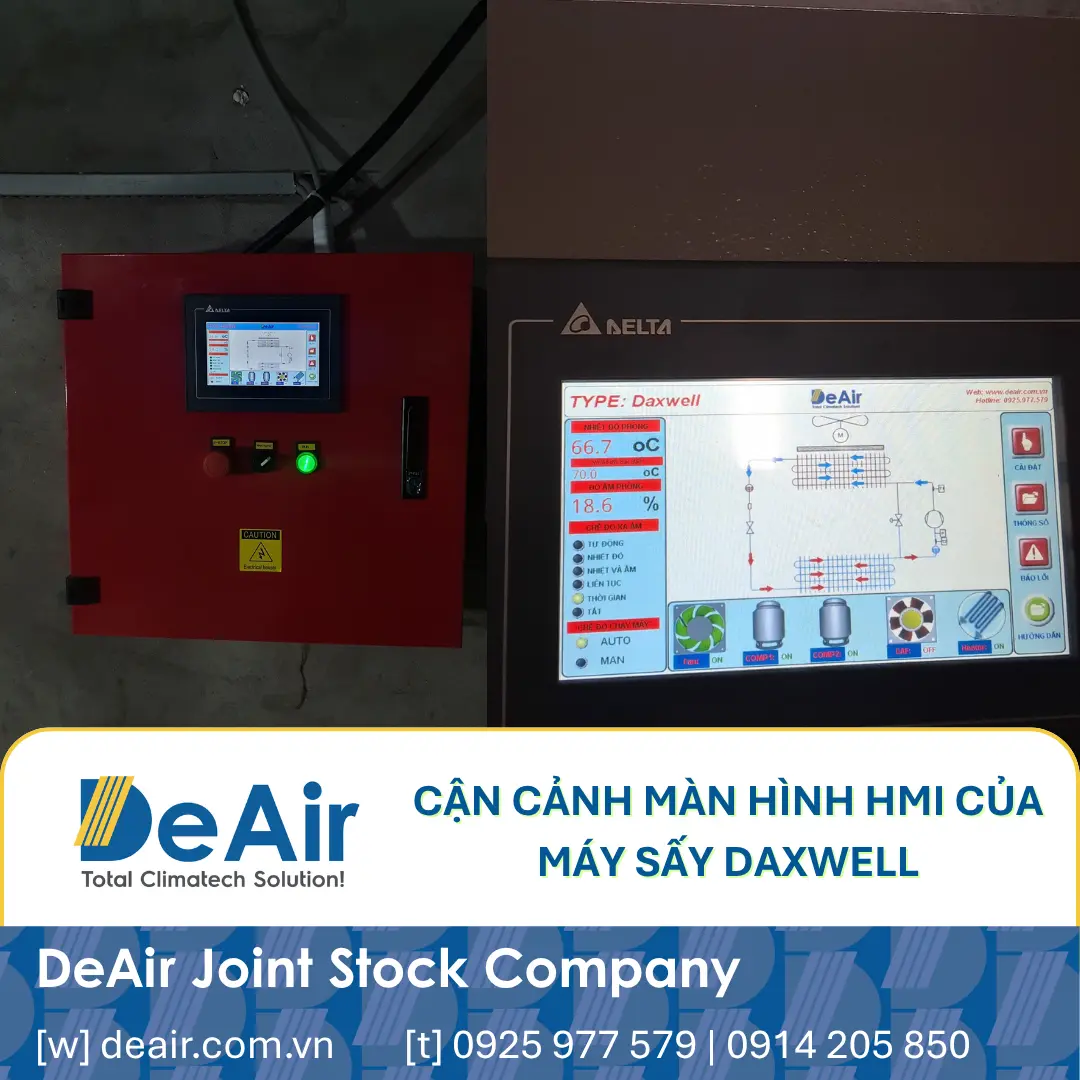
Who is the target audience for the Daxwell Heat-Pump Dryer?
Daxwell is the "Golden Mean" solution (High quality & Low operating cost), targeting:
- Farms, Cooperatives, and Processors: Units that want to add value to their produce, moving from low-quality sun-drying to clean, color-preserving, nutrient-preserving drying for supermarkets and export.
- Businesses Currently Using Resistance/Kiln Dryers: Units struggling with massive operating costs (electricity, fuel) who want to cut energy bills by 50-70% while also improving product quality.
- Startups in Dried Foods: New businesses needing a high-quality output (beautiful color, great texture) to compete, but at a reasonable investment cost (cannot afford freeze-drying).
5. Frequently Asked Questions (FAQ)
1. Can a Heat-Pump dryer preserve the green color of vegetables?
Yes. Because it dries at a low temperature (below 60°C), the Daxwell Heat-Pump dryer preserves chlorophyll much better than high-heat dryers (which cause browning). The final product retains a beautiful, natural green color.
2. What is the monthly cost difference between Heat-Pump and Resistance drying?
If a resistance dryer costs your business 100 million VND in electricity per month, switching to a Daxwell Heat-Pump (with a COP ≈ 3) would reduce that cost to only 30-40 million VND. A 50-70% saving is realistic.
3. Where can I test-dry my own vegetable products?
DeAir has a lab and test-drying systems at our factories (HCMC and Hung Yen). We encourage clients to bring their products for a free drying test. Our R&D team will work with you to find the optimal drying cycle (time, temperature, quality) before you decide to invest.
Elevate Your Produce - Stop Drying Away Nutrients!
Contact DeAir today for a consultation on the Daxwell industrial vegetable dryer solution. We offer FREE SAMPLE DRYING TESTS for your products at the DeAir lab!
DEAIR JOINT STOCK COMPANY
Email: operation@deair.com.vn
Hotline: +84 925 977 579 (Ms. Tam) | +84 914 205 850 (Ms. Hoa)
Website: deair.com.vn
Sign up for news from DeAir
Related news






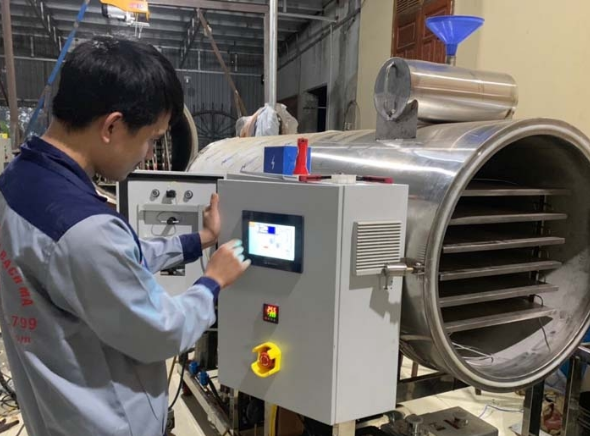


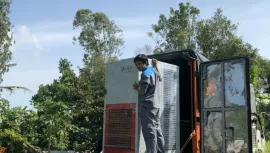
![[Case Study] DeAir Installs DeAir.De Rotor Humidity Control System for Pharmaceutical Plant in Binh Duong [Case Study] DeAir Installs DeAir.De Rotor Humidity Control System for Pharmaceutical Plant in Binh Duong](https://deair.com.vn/thumbs/news/2023_04/ban_giao_may_cho_duoc_bd/[270x153-cr]image1-1024x772.jpg__cv.webp)
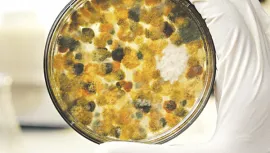
![[Review & Guide] Olmas OS-300: The New Humidity Control "Warrior" for Medium to Large Warehouses [Review & Guide] Olmas OS-300: The New Humidity Control "Warrior" for Medium to Large Warehouses](https://deair.com.vn/thumbs/news/huong_dan_su_dung_may_olmas_21/[270x153-cr]vtm06440.png)